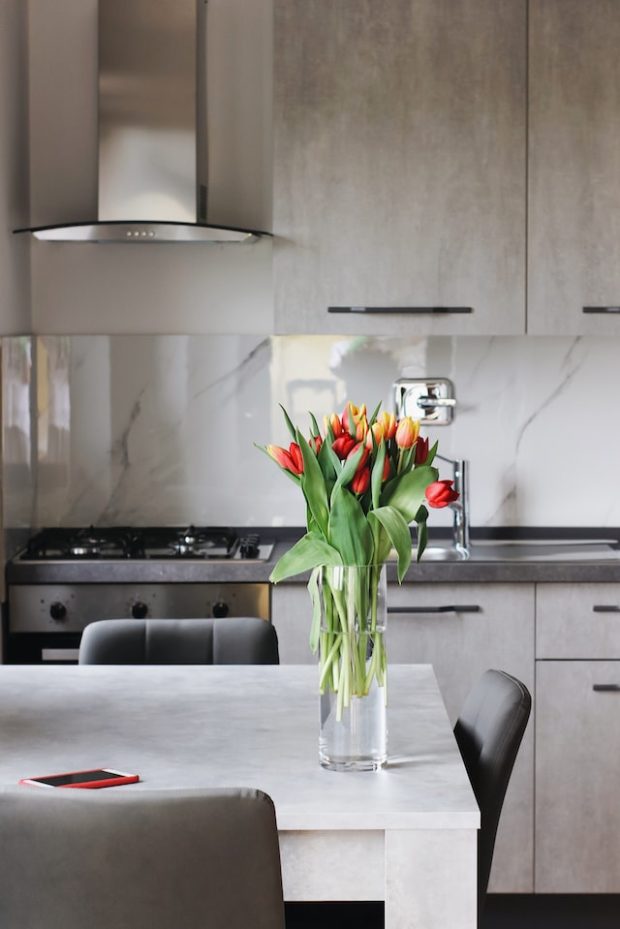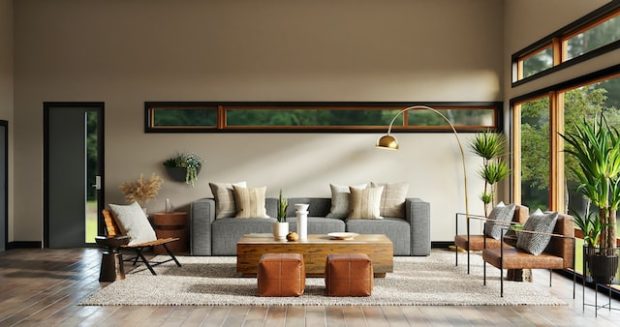Interior design is a creative and exciting process, but it can also be overwhelming. With so many elements to consider – from furniture and textiles to lighting and color – there’s a lot of pressure to make sure you get everything right. If you’re about to embark on an interior design project for the first time, or if you just want some tips on how to do it better, here are 8 essential things that you should think about when planning your interior design project – from understanding your space and budgeting effectively, to considering functionality as well as aesthetics, these are all key points that will ensure your project goes smoothly from start to finish.
1. Budgeting
Before you even begin thinking about fabrics and furniture pieces, it’s important to know exactly how much money you have available for your project. This will help inform every decision that you make throughout the project and ensure that you stick within a realistic budget. Factor in the cost to decorate a room and how much it will be to replace any existing furniture. For example, some pieces of furniture are more expensive to purchase, such as a sofa, than others. And of course, these furniture pieces need to be more durable and of higher quality, meaning that, from the start, you have to factor them in as investments, rather than just additional costs. While it’s easy to get carried away with the creativity of interior design, it is essential to be realistic about your budget and plan for it accordingly.

2. Space and Layout
You need to consider how much space you have available in each room as well as the practicalities of the layout. Look at where doors and windows are located and whether obstacles such as radiators or alcoves will affect the design. It’s also wise to factor in furniture pieces that may need extra clearance, such as large dressers or armchairs, which should be placed close enough together for ease of movement, but far enough apart to allow for enough walking space around them. As an overall rule, try to ensure that all furniture pieces are within easy reach of each other and that no items obstruct the flow of the room.

3. Functionality
Another important factor to consider when planning a design project is functionality – what do you want the space to be used for? Think about how you currently use it, how you would like to use it in the future, and what furniture pieces or accessories might help facilitate that. For example, if your living room is also doubling up as a home office, then adding in some shelves or storage units will help keep things organized and tidy. On the other hand, if your bedroom needs to double as a guest room then adding in an extra bed or sofa bed could come in handy. It’s important to think about how you will use your space and how it should be set up to best facilitate that.
4. Color Scheme
Color is a major part of the overall design aesthetic, so when planning your project you’ll need to think carefully about what colors will work best in each room. Think about which hues will help create the desired atmosphere and mood – bright and bold colors are great for making a space feel lively while softer pastels can help create a calming ambiance. Also think about how different color combinations could be used to highlight certain features or furniture pieces in the room – for example, using contrasting shades can draw attention to architectural details or artwork on display.
5. Lighting
Lighting plays an important role in interior design, as it helps to set the atmosphere and mood of a room. Consider whether you need ambient lighting, task lighting, or accent lighting – all three will have an impact on your design project and should be properly thought out before you start the process. It’s also important to think about natural light, such as sunlight coming through windows, and how this can be used to highlight certain features in the room.
6. Furniture Pieces
Furniture pieces are key elements in interior design projects – they take up space, add visual interest, and provide functional storage solutions. When selecting furniture for your project keep in mind the size of each piece relative to the size of the room – larger furniture pieces can make a small space feel cramped, while smaller pieces may be more suitable for larger rooms. It’s also important to consider the shape of furniture – curved-shaped pieces can help create a softer ambiance and corner seating can be great for creating a cozy atmosphere.
7. Accessories and Decorations
Accessories and decorations are the finishing touches that will help pull your design project together, so it’s important to pick the right items to suit the look you are aiming for. You might want some wall art or an area rug to add color and character, or perhaps some plants or flowers to bring life into the space. The options are endless – just make sure that whatever you choose fits with your overall theme and helps create an inviting atmosphere.
8. Mirrors
Mirrors deserve special consideration when it comes to interior design because their purpose isn’t just for decor. Mirrors can make a space feel larger and brighter by reflecting natural light, while their reflective surfaces also help draw the eye to different parts of the room. Place mirrors strategically around the room to ensure that they are making the most of available light sources and helping to create an inviting atmosphere. Of course, you can also use mirrors as decorative elements – just make sure to pick the right size and frame that fits with your design scheme.
Once you have selected all of the above elements it’s time to move on to the finishing touches – such as artwork, textiles, and even scented candles or diffusers. These extra details will add personality to your design project and help bring everything together in a cohesive manner. Just make sure not to go overboard – too many accessories can end up making a space look cluttered rather than stylish. Having thought through each of these steps carefully, you should now be ready to start your interior design project!
